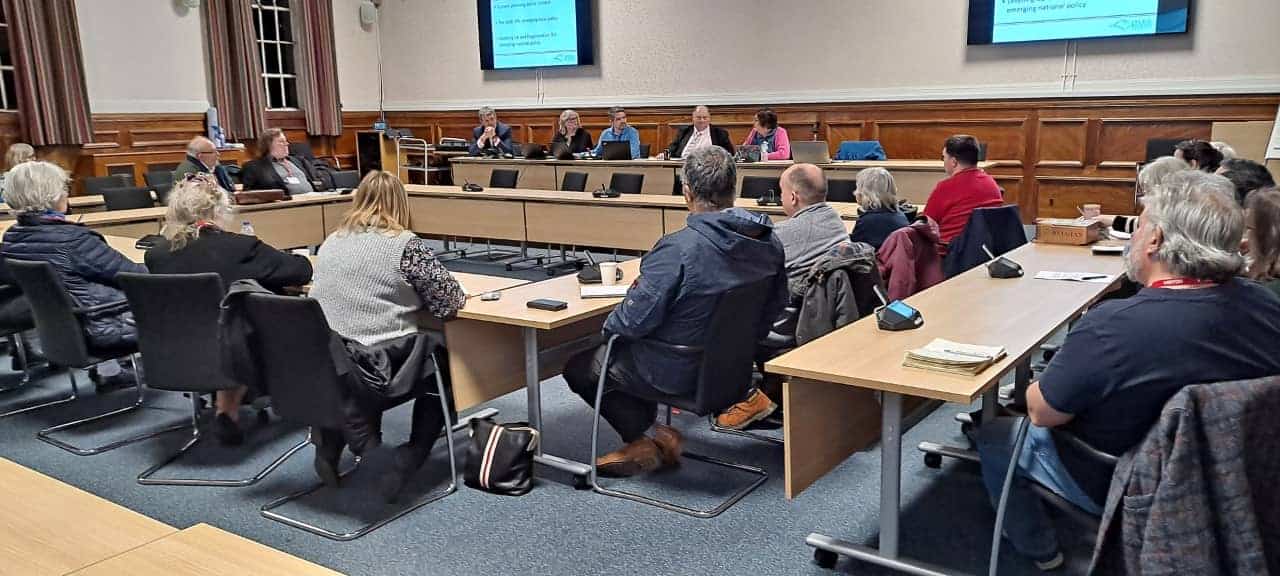Twenty-five parish, town and community council representatives met officers from the Isle of Wight council recently to find out more about the council’s plans to address the Island’s current shortage of affordable accommodation, especially rented housing.
Cllr Paul Fuller, Cabinet Member for Planning, was also present.
Organised by IWALC
The meeting was organised by the Isle of Wight Association of Local Councils (IWALC) and chaired by Cllr Anne Bamford, IWALC’s deputy chair.
It focused on four specific aspects of the problem: second homes and holiday homes, empty buildings, enforcement, and the council’s new housing company.
Second homes and holiday homes
James Brewer, the council’s Planning Team Leader (Policy and Delivery), explained that both planning and legal means are required to address the concerns about second homes and holiday homes.
Since the problems are local rather than Island-wide, neighbourhood plans are usually the best planning tool. On the legal front, the council is awaiting proposed government legislation that will regulate holiday homes and allow local councils to increase council tax on second homes.
Discussion focused on the problems of defining such properties and the loopholes that owners could use to avoid paying increased tax.
Empty Buildings
Dawn Lang, the council’s recently appointed Strategic Manager for Housing, reported that there are currently 922 known empty residential properties on the Island. The council tries to work with the owners to bring them back into productive use, but if this fails, more drastic measures can be taken.
Members expressed frustration at the council’s apparent reluctance to use more drastic measures, especially with larger empty buildings. Cllr Mick Lyons was particularly concerned about the large empty buildings in Ryde. This led on to the discussion on enforcement.
Enforcement
Ollie Boulter, the council’s Strategic Manager for Planning and Infrastructure Delivery, introduced the council’s proposed new Enforcement Strategy.
He explained that, because enforcement is not a statutory function and their resources are limited, they are proposing that the council focus on major enforcement cases and inviting local councils to contribute to the cost of dealing with other cases in their areas.
Members expressed concerned about local councils’ capacity to contribute to the costs. Commenting after the meeting, Cllr Diana Conyers, IWALC’s Chair, said,
“We appreciate the council’s current resource constraints, but there are limits to the number of IW council functions we can take over.”
IW council’s Housing Company
Dawn Lang explained that, although a company had been registered in 2019, under the previous administration, it is not yet operational.
The council’s legal team are currently working on the details, including the company’s relationship to the council, its functions and a business plan. In the meantime, the council is using other means to increase housing stock and support homeless residents.
Hobbs: We need social housing for our residents
Members emphasised the need for the company to focus on social housing.
Cllr Brenda Hobbs said,
“We don’t want another commercial housing company. What we need is social housing for our residents.”
Closing the meeting, Cllr Anne Bamford thanked the council’s staff for taking the time to come and brief members.
She said,
“We appreciate the efforts that the council is making to work with local councils.”
News shared by Jill on behalf of IWALC. Ed





